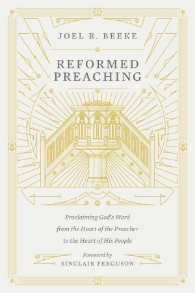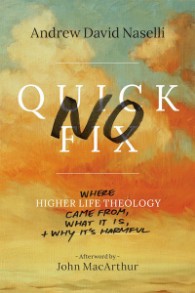(seventh article of our series on the Seven Churches of Asia Minor. Revelation 1-3)
“To the angel of the church at Ephesus, write: These things says he who holds the seven stars in His right hand, who walks in the midst of the seven golden candlesticks: ‘I know your works…’” (Revelation 2:1ff)
The first of the seven churches of Asia Minor is Ephesus. Its letter is found in Revelation 2:1-7.
Blessed are you among churches, Ephesus.
You were begun, it would appear, by the highly esteemed husband-wife team of Aquila and Priscilla. On his way home from the Second Missionary Journey, the Apostle Paul left Aquila and Priscilla at Ephesus but did not stay himself.
Ephesus had the ministry of the gifted Apollos, who would have been a media darling in our modern age from all evidence. (Move over, Joel Osteen!)
Paul spent three years ministering in Ephesus. (Acts 19 mentioned two years and three months, but in Acts 20, Paul tells the Ephesian leaders he spent three years there.) This was the longest time he gave to any one congregation.
Then, Ephesus was pastored by Timothy and later by the Apostle John. They had had the best.
Unto whom much is given, much is required, said our Lord in Luke 12:48.
The City–
Ephesus was the biggest city in Asia and the most important center for commerce, politics and religion throughout the region. With a population of 300,000, it was the third largest city in the Roman Empire.
The Temple of Artemis (Diana) was there. Said to be 400 x 200 feet in diameter and 60 feet tall, with 127 columns this was considered one of the seven wonders of the ancient world. Look up the Temple of Artemis and you’ll not be impressed. She was one ugly lady. And because of the emphasis on fertility, the statue was adorned with many female breasts. (Pastors, you probably won’t want to be showing that on the screen!)
Ephesus, we’re told, was considered the dividing point between the East and the West. (Which is interesting, since there is no automatic point delineating East-West the way there is with the North and South. We think of Psalm 103:12, “As far as the East is from the West, so far has He removed our transgressions from us.”
Ephesus was located at the mouth of the Cayster River between the Meander and the Hermus rivers. So it was convenient for travel, trade, cultural mixing, etc. Archeological remains today include a Domitian temple and a huge statue.
Not that any of this matters for our study. I am much aware that commentaries on these seven cities feel a necessity to give details on the city in question. But if I were writing a commentary on my church, to give details about Jackson, Mississippi, and its commerce, culture, history, location and such might be remotely interesting but would have little to do with what the Lord actually was saying in His analysis of the church. So, let’s go on.
I know your works…
The Lord says this to all seven of the churches. It figures, of course, since He “walks in the middle of the lampstands.” He is among us, seeing as no one else does, knowing it all. Nothing is hidden from His searching eyes.
The Lord knows the deeds of this church, its labors (to the point of exhaustion), its perseverance and its love for the truth. The Lord knows how their zeal for truth—pardon me, Truth!—drove them to put on trial some having fake credentials as apostles and putting them out of business. The Lord knows the Ephesians did all these things for His name’s sake, which sounds about as good as we could ask for.
But it isn’t. Something is wrong.
I have something against you…
“You have left your first love.”
You’re doing incredible work, Ephesians. True, enough. But it’s all about to come crashing down.
You have forgotten to love one another.
Such a subtle thing in a church with a glowing resume. Many would say this hardly matters, that we have a church here leading the denomination, setting new marks for accomplishments, raising the bar.
It matters to the Lord Jesus. Earlier He said this would be the mark of the believer. “By this shall all men know that you are my disciples, that you love one another…even as I have loved you” (John 13:34-35).
So, what’s going on here?
I’ll tell you what I think it is. These Ephesians are saying they love God and perhaps they do. But they have no love for the people, for one another, for outsiders with whom they deal.
It’s the horizontal relationships, not the vertical, that they have allowed to lapse. And this matters a great deal to our Lord.
In fact, He’s not going to allow it.
“Though I speak with the tongues of men and of angels, donate all my possessions to feed the poor, and give my body to be burned, unless I am loving people it will be for nothing” (cf. I Corinthians 13).
My friend Margaret Perkins told me something that happened at home one morning as the children were getting ready for school. Youngest child Sidney for some inexplicable reason prepared lunches for himself and his sisters Jean and Lynn that morning. Mom watched and was impressed. She was just about to brag on her son, when suddenly Sidney picked up the lunch bags and threw them at the feet of his sisters. “There!” he said. “There are your lunches!” Mom Margaret watched all that and said, “Oh, Sid, honey! You almost got it right!”
Almost, but not quite. Without love, nothing counts.
Where does such love come from?
“The love of God has been poured out in our hearts by the Holy Spirit who was given to us” (Romans 5:5). He is the Source of love.
“The fruit of the Spirit is love, joy, peace…” (Galatians 5:22).
And so, the Ascended Ruling Lord gives the Ephesus Church a prescription, of three steps…
–Remember from where you are fallen.
–Repent. Call the lack of love what it is: sin. Repent of it.
–Repeat the first works. Do what you did at first—all the basic things new believers do. They worship, fellowship, pray, get into the Word and make a serious effort to draw close to the Savior.
Repent or else!
“Or else I will come to you quickly and remove your lampstand from its place—unless you repent.”
If the lampstand represents the church, as Jesus said it did in 1:20, then what does it mean for Him to remove the lampstand? It sounds a mite like double-talk, speaking of removing the church from the church.
I think we know. Because we’ve seen it happen.
It’s the presence of the Lord Himself that makes a congregation a church of Christ. So, removing the lampstand would mean the Lord leaving that church. He would be withdrawing His presence, His blessings, His power. They would still be able to meet as a congregation and go through the motions, but the Lord would not show up and would not touch lives and anoint messages and bless worshipers.
The Lord would cancel their franchise.
A franchise business is part of a large enterprise. The local owner signs a contract by which he purchases a franchise operation, agrees to purchase all his supplies from the parent company, and to abide by its policies, regulations and operations. If a local restaurant fails to keep up its end of the bargain, the parent company can cancel its franchise. They remove the signage and take away anything identifying it as a BK. Now, the local owner can go right on selling fries and burgers, but he’s on his own. So with a church that has lost its franchise, i.e., its lampstand. It may continue to meet and call itself a church, may keep right on using the Scriptures and doing all the religious things. But the Lord is no longer there and no one encounters Him in the services.
It’s the death knell for a church.
The promise: To him who overcomes…
“I will give to eat from the tree of life, which is in the midst of the paradise of God” (2:7).
Ray Summers said, “The concept of overcoming is one of the outstanding ideas of the Book of Revelation.”
Ray Stedman said: “Imagine it! The tree of life which was removed from us by sin in the Book of Genesis, when Adam and Eve were cast out of Eden, is now being offered to us again in the Book of Revelation. In the concluding book of the bible, the Word of God comes full circle.
Paradise was a place of fellowship with God, wherever it was precisely. In Luke 23, Jesus promised the thief on the cross that “today thou shalt be with me in Paradise.”
This article originally appeared here.























